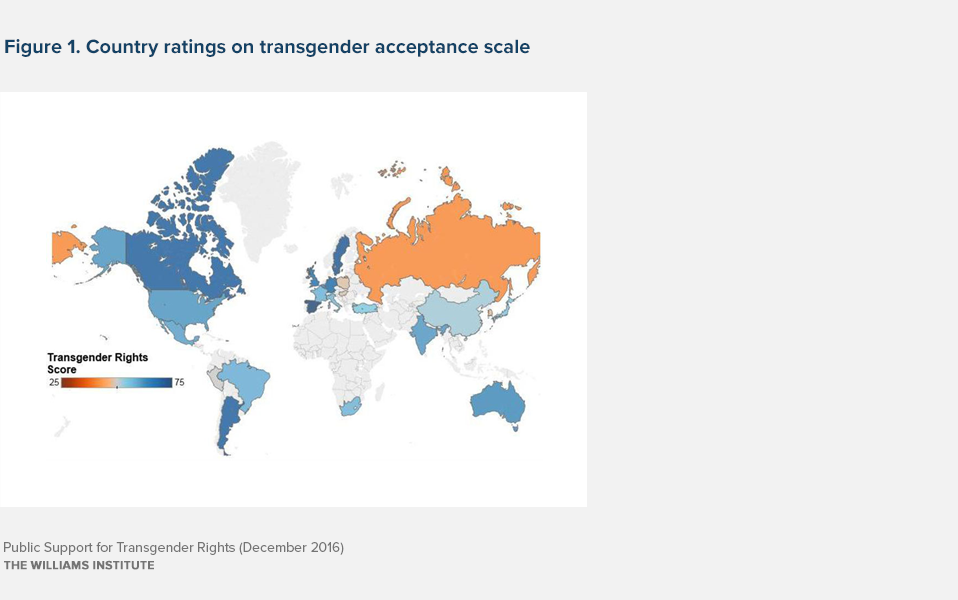Executive Summary
Transgender rights have emerged as a central feature in the discourse on LGBT rights in many countries; however, little is known about public support for such rights around the globe. This report presents findings from a ground-breaking survey of 17,105 adults across 23 countries about their attitudes towards transgender people and transgender rights. Key findings include:
- In all 23 counties, majorities of survey respondents supported important transgender rights:
- Majorities in all 23 countries believe that transgender people deserve the right to change their identity documents to be consistent with their gender identity, though a substantial portion believes that some form of regulation from medical professionals, medical interventions, and/or government is necessary.
- Majorities in 21 countries support policies banning discrimination against transgender people.
- Majorities in 16 countries support rights to marry for transgender people.
- Majorities in 14 countries support adoption rights for transgender people.
- Majorities in 15 countries support allowing access to public restrooms consistent with a transgender person’s gender identity.
- A new scale that plots countries’ average level of public support for transgender rights, found high levels of support with most countries surveyed falling near the middle. Scores ranged from 41 to 74 on a scale with 100 reflecting full support. Russia ranked the lowest with a score of 41, and Spain ranked the highest with a score of 74. Sweden, Argentina, Canada, Germany, and Great Britain also had high scores, all above 67.
- Findings further show that younger individuals, women, people with higher levels of formal education, and people with higher incomes are more approving of transgender rights.
- The strongest predictor of approval of transgender rights is whether people report having friends or family members who are transgender. About 10% of the respondents report having transgender friends or family members, and support for transgender rights is about 24.6% greater for these respondents than among those who do not have such friends or family members.
